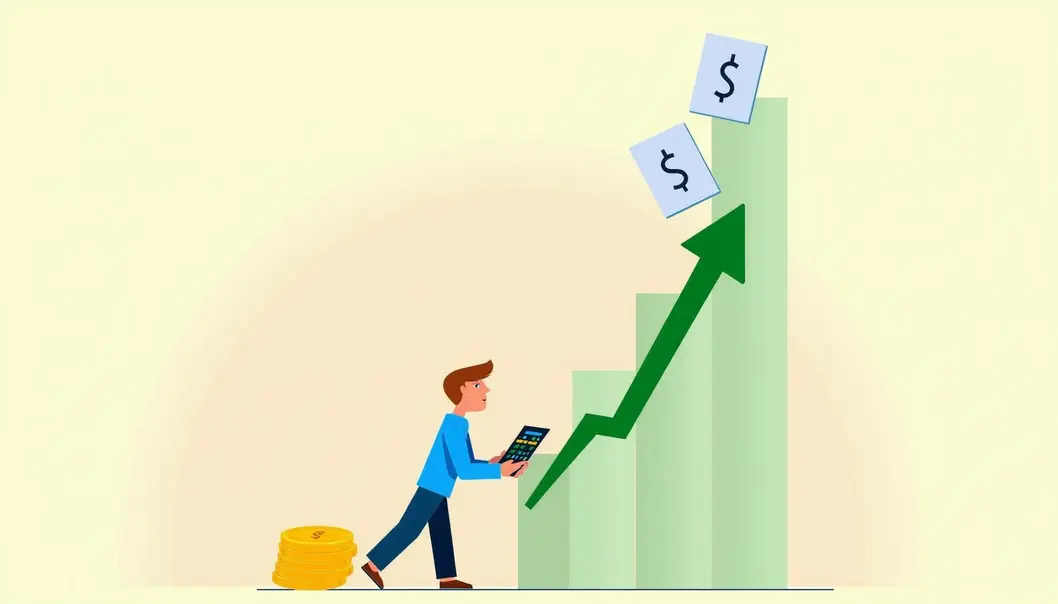Inflation is a critical financial concept that every freelancer must understand to navigate their fiscal landscape effectively. As freelancers, income fluctuations and costs can be challenging, particularly when inflation begins to alter the purchasing power of our money. When prices rise, the value of our earnings appears diminished, necessitating informed financial decisions. This article delves into the intricacies of inflation, its impact on your finances, and offers actionable strategies to safeguard your income. By grasping the effect of inflation, freelancers can not only preserve their lifestyle but also take proactive measures to ensure economic stability in an ever-changing financial climate. As we explore the relationship between inflation and your money, you’ll discover essential budgeting techniques, insight into smart spending, and how investing can secure your financial future in the face of rising costs.
Understanding Inflation and Its Impact on Your Money
Inflation, a term often used in economic discussions, signifies the gradual increase in the prices of goods and services over time. This phenomenon can significantly impact the purchasing power of your money, influencing everything from your daily expenses to investment strategies. Understanding the nuances of inflation is indispensable for maintaining financial health and making informed economic decisions.
What is Inflation?
Inflation occurs when the general price level of goods and services rises consistently in an economy. It stems from various factors, including shifts in supply and demand dynamics, monetary policy actions from central banks, and external shocks such as natural disasters or geopolitical events. A moderate inflation rate, typically around 2% per year, is viewed favorably as it often correlates with economic growth, suggesting that consumers are eager to spend and that businesses are producing more goods.
Causes of Inflation
Understanding the causes of inflation can empower you to anticipate its effects on your finances. One of the primary drivers is the imbalance between demand and supply: when demand outpaces supply, businesses can raise prices. Additionally, monetary policies, such as lowering interest rates or increasing the money supply, can lead to more cash circulating in the economy, pushing up prices.
Government spending can also play a crucial role. When the government invests in infrastructure or social programs, the spending can stimulate demand at a rate that supply cannot match, resulting in inflation. Another key contributor is the cost of production, which can rise due to increasing wages or rising costs of raw materials, inevitably leading to higher prices being passed onto consumers.
Effects of Inflation
The most immediate effect of inflation is the reduction in purchasing power. As prices increase, your money buys less than it did before. For instance, if a loaf of bread costs $2 today, that same loaf might cost $2.20 next year due to inflation. This erosion of value means that if your income does not increase correspondingly, you may find yourself struggling to maintain your standard of living.
Inflation also profoundly affects savings. If the interest rate on your savings account is lower than the inflation rate, the real value of your savings decreases over time. This highlights the importance of seeking investments that can outpace inflation, ensuring that your money retains its value and purchasing power.
Interestingly, moderate inflation can signal positive economic growth. As prices rise, businesses often respond by expanding operations and hiring more staff, which can lead to greater consumer spending and wage increases. However, it’s important to note that severe inflation or hyperinflation can wreak havoc on an economy, destabilizing markets and significantly reducing living standards.
Managing Inflation’s Impact
To mitigate the effects of inflation on your personal finances, it is vital to implement strategies that can enhance resilience and purchasing power. One fundamental approach is effective budgeting. By tracking your spending and adjusting your budget accordingly, you can make informed decisions to allocate your resources judiciously.
Another strategy is smart shopping. Taking the time to search for deals, use coupons, and plan purchases during sales can help you save money, cushioning the impact of rising prices on your wallet. Additionally, considering opportunities for diversified income streams—like part-time work or freelance gigs—can boost your overall financial stability.
Investing is one of the most powerful tools at your disposal to combat inflation. By allocating resources into stocks, real estate, or bonds that tend to appreciate at a rate surpassing inflation, you can grow your wealth and maintain your purchasing power over time. Moreover, some investment options are specifically designed to be inflation-resistant, such as Treasury Inflation-Protected Securities (TIPS).
Conclusion
Navigating the complexities of inflation is essential for anyone who wants to manage their money effectively and maintain financial security. By staying informed about the causes and effects of inflation, you can adopt proactive measures to protect your financial well-being. With a solid understanding of inflation and its implications, you can make more informed decisions, whether it’s adjusting your spending habits, enhancing your investment strategy, or planning for future financial goals. Remember, inflation is a natural part of economic cycles, and by being prepared, you can mitigate its impact on your money.
For more insights on budgeting effectively, check out our guide on Budgeting 101: Track and Cut Expenses.
Final thoughts
Understanding inflation is essential for freelancers striving to maintain financial stability. By knowing how inflation impacts purchasing power and implementing effective strategies, you can safeguard your earnings against rising costs and secure your financial future.
Stay informed about financial literacy to make empowered decisions. Subscribe for more tips!
Learn more: https://savemawallet.com
About us
Join today to gain exclusive access to expert financial advice tailored for freelancers, helping you navigate your finances effectively.


Leave a Reply
You must be logged in to post a comment.